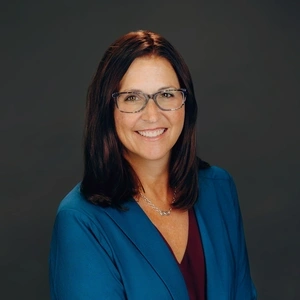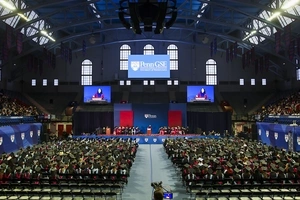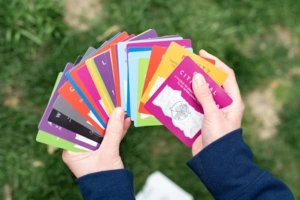Faculty Expert
-
Diana Wildermuth
Lecturer in Educational Practice
Human Development and Quantitative Methods Division
As high schoolers savor the final weeks of summer break, college application season looms just around the corner. In the coming months, 12th-graders will work with parents, teachers, and school counselors to write essays, craft applications, submit financial aid forms, and anxiously await admissions decisions. While senior year is often seen as crunch time, the preparation begins much earlier — sometimes as early as 8th grade.
Diana Wildermuth, a Penn GSE lecturer in educational practice and an experienced school counselor, emphasizes that high school is a journey of self-discovery. Teens and families can take steps each year toward post-secondary readiness.
Drawing on her extensive experience (including guiding her two sons through the process), Wildermuth offers grade-by-grade advice and insights to support students, families, and educators.
8th and 9th Grade
As young teens approach or enter high school, “encourage your student to be involved in school and the community,” Wildermuth says.
Explore extracurricular activities
To develop interests and build community, eighth and ninth graders should join clubs, athletic teams, and school performances and volunteer for service projects.
Push academic options
Wildermuth encourages students to take challenging classes and explore different subject areas, such as STEAM (science, technology, engineering, arts, and math), business, or language.
Try a standardized test
The College Board offers a version of the PSAT for eighth and ninth graders. As some schools reevaluate their testing policies, “it’s a good idea to take some prep tests,” Wildermuth says.
10th Grade
In addition to rigorous courses, Wildermuth advises students to take the PSAT 9/10 in the fall and spring and get involved in extracurricular activities.
Discuss college options and finances
“10th-graders should be doing a lot of exploration,” Wildermuth says.
Families can brainstorm college options, such as school size and location, and assess their finances.
Chat with a family friend in college or make a pit stop at a campus during a road trip. An assessment tool like Naviance or Scoir, available in school counseling offices, can help target their search.
Meet with your school counselor
School counselors are pivotal in helping students select and apply to college. Encourage your student to meet their counselor and check in regularly.
Invest in your summer
Summer isn’t just for working on your tan. Students can take courses, get a job or internship, attend a college program or career camp, and visit campuses.
11th Grade
Academics are more important than ever, Wildermuth notes.
“The first question admissions officers often ask is, ‘How is school going and how are your grades?’” she says.
She advises juniors to take the PSATs in the fall and to look for leadership roles in clubs and teams.
Start your financial aid research
Review the Free Application for Federal Student Aid (FAFSA) and research scholarships in your community.
Take the SATs and ACTs
Enroll in an online or local test prep course (many school districts offer free or low-cost options). Take the SAT or ACT — or both — in the spring.
Build teacher relationships
Most college applications require at least two teacher recommendations. Counselors and parents can help students navigate the process and request recommendations — before school lets out for the summer.
Application boot camps
Many schools offer seminars, boot camps, and online resources to complete the Common Application and workshop their essays with teachers and peers.
Explore schools
Visit schools in person or take virtual tours to assess your student's likes and dislikes. Many schools host admissions representatives or college fairs.
12th grade
It’s go time. If seniors used summer break to start applications, bravo. If not, don’t worry, there’s plenty of time. Students can also retake the SAT or ACT and start the Common App.
Get organized
Make a spreadsheet to track your applications by school, including required documents, login information, and deadlines.
Submit requirements and applications
Report standardized test scores, complete and submit the FAFSA application, and apply for scholarships. Send off applications in advance of their due dates.
Look for free admissions days
Some states sponsor free admissions days or weeks, usually in October when eligible students can submit their applications to select schools at no cost.
Keep your grades up!
Even after your student hits submit, their grades are important. Some schools may ask to see second-semester grades.
Finally, Wildermuth encourages parents, teachers, and counselors to be supportive and encouraging.
“They are teenagers treated like adults trying to make decisions for the rest of their lives,” she says. “Walk alongside them.”
Media Inquiries
Penn GSE Communications is here to help reporters connect with the education experts they need.






